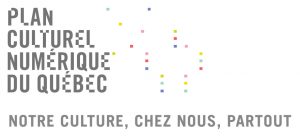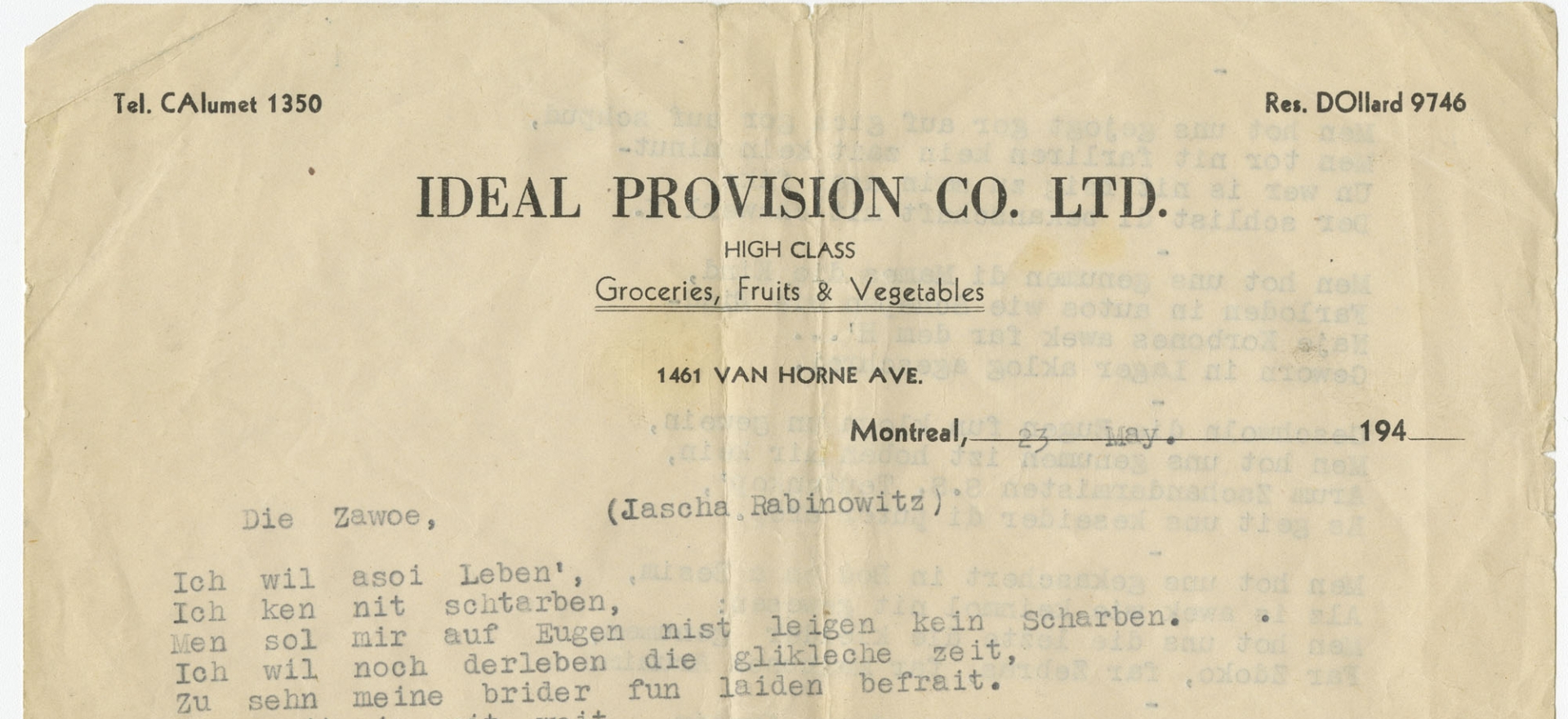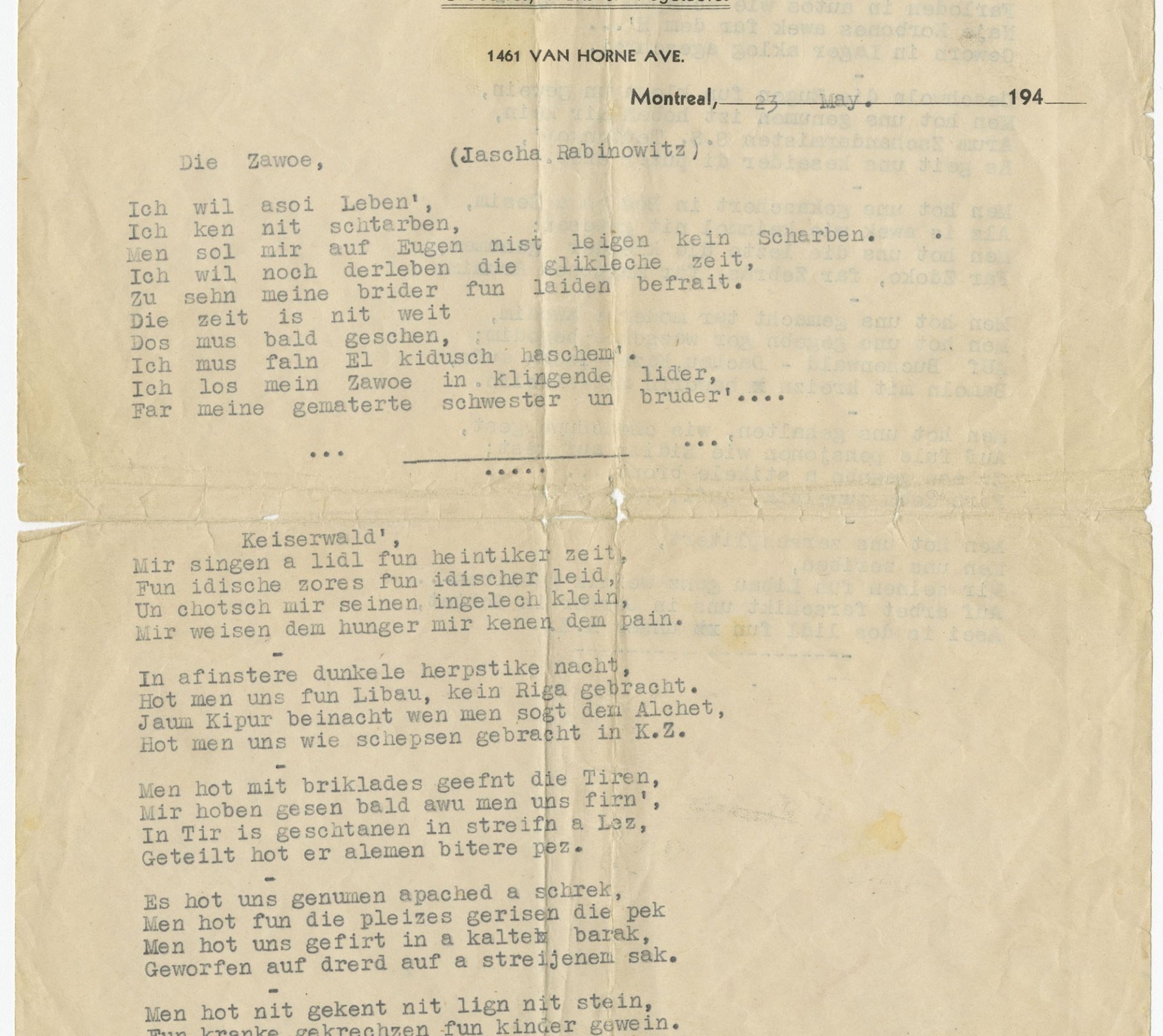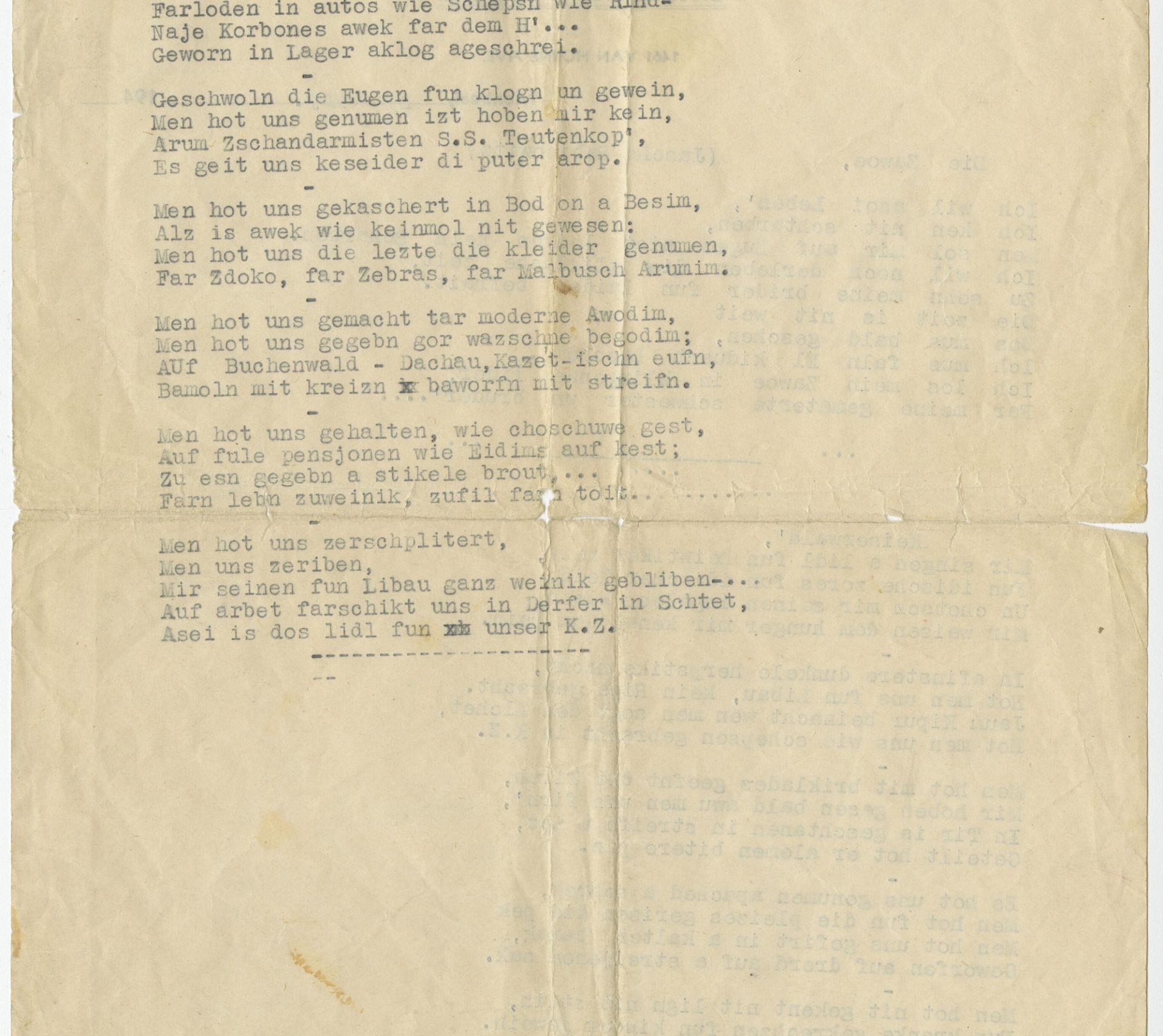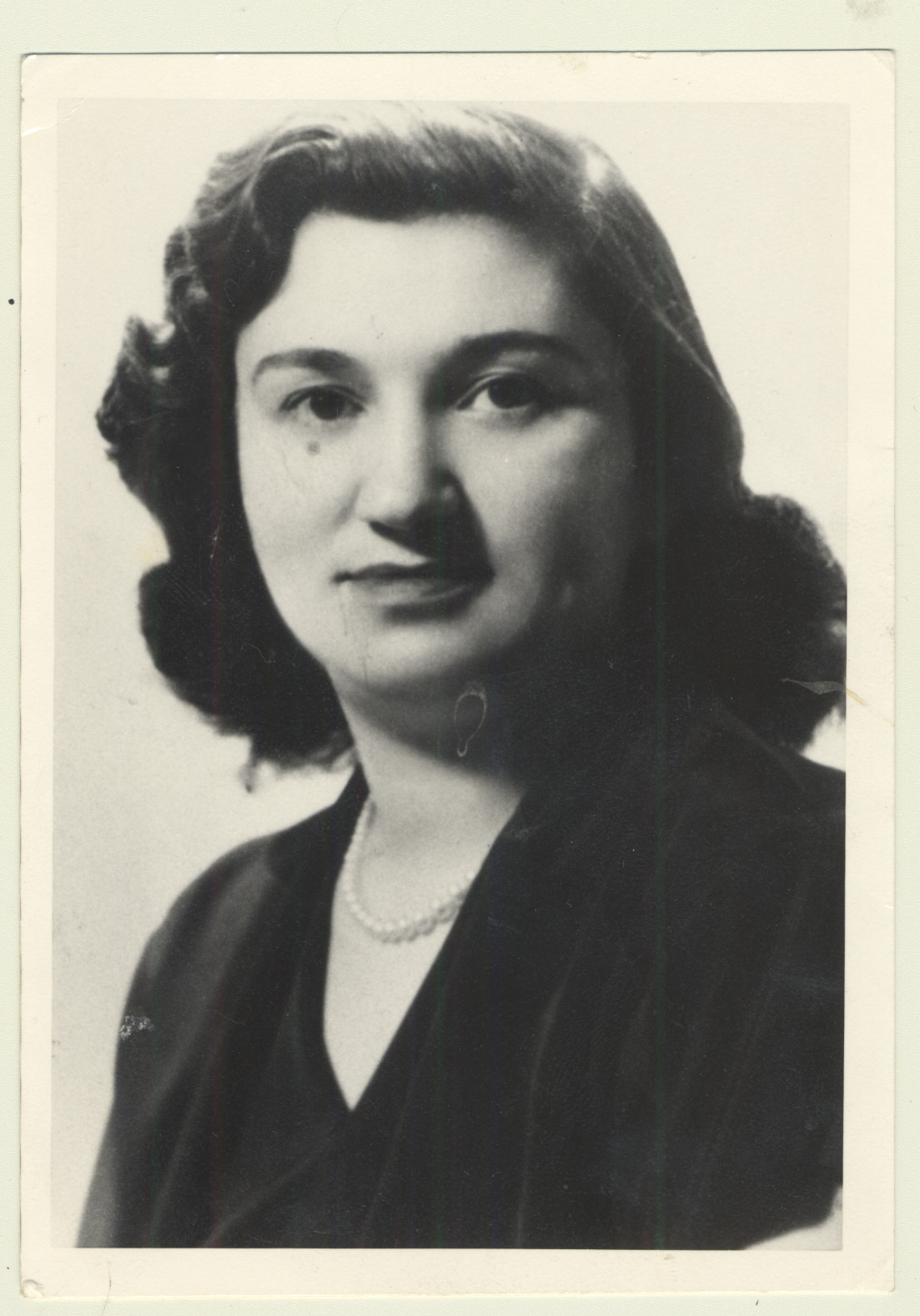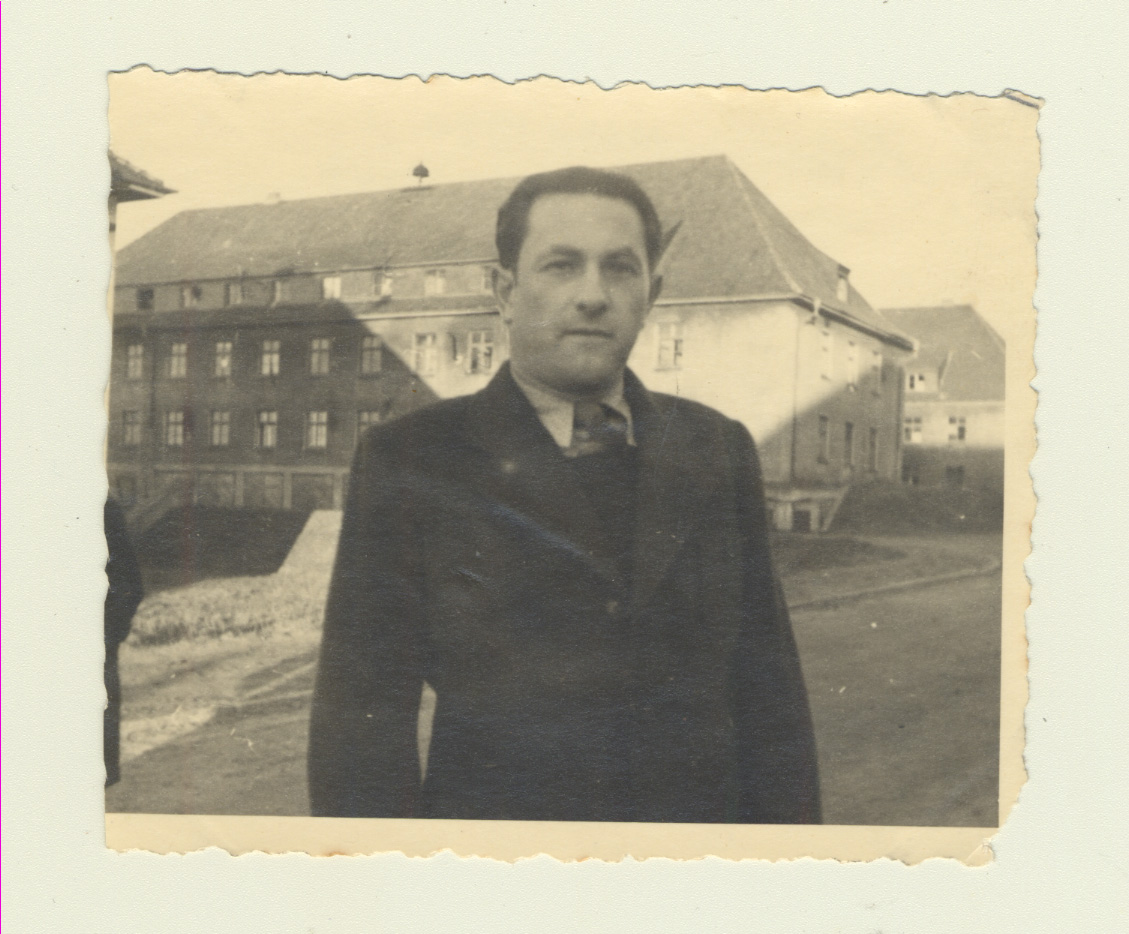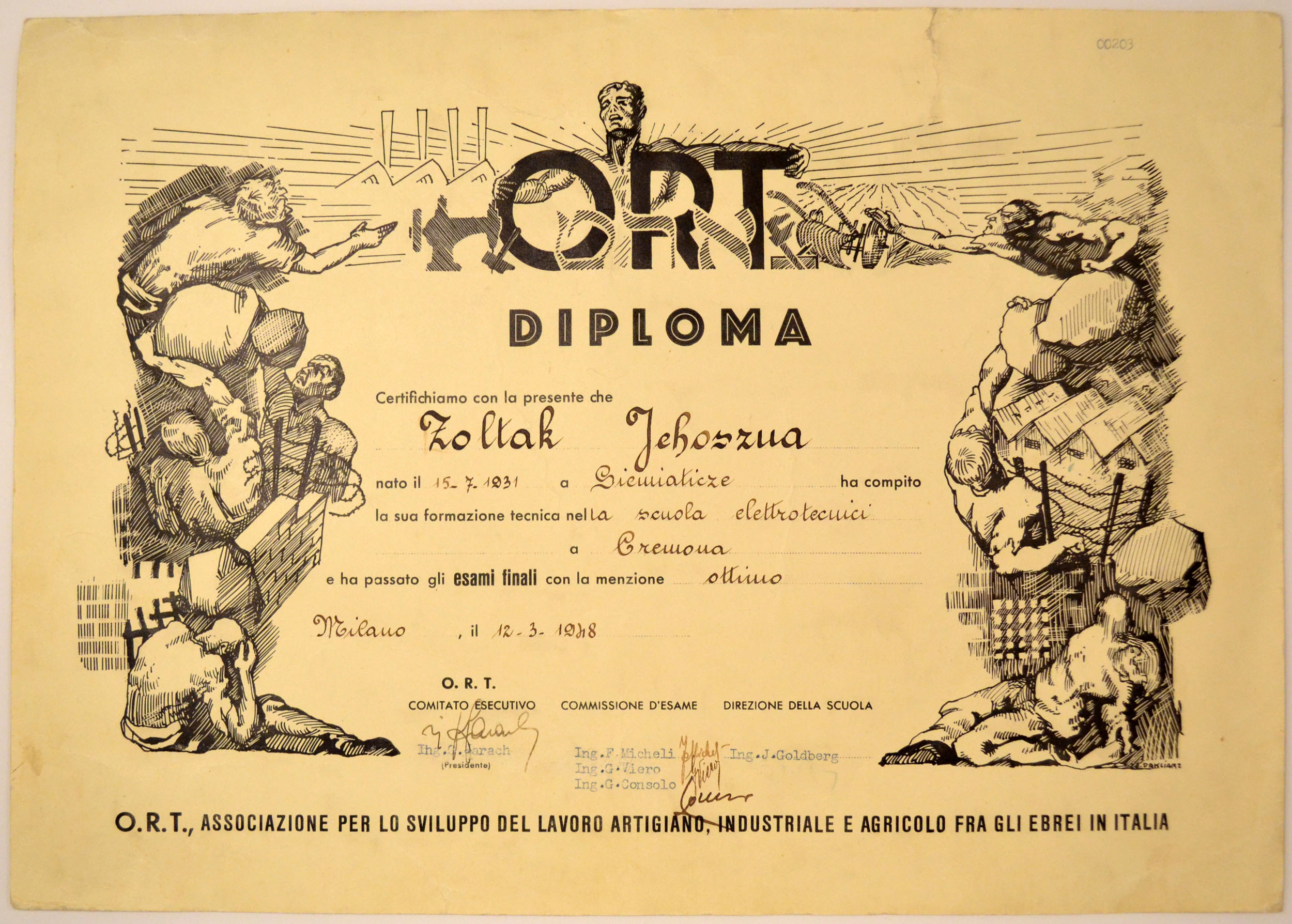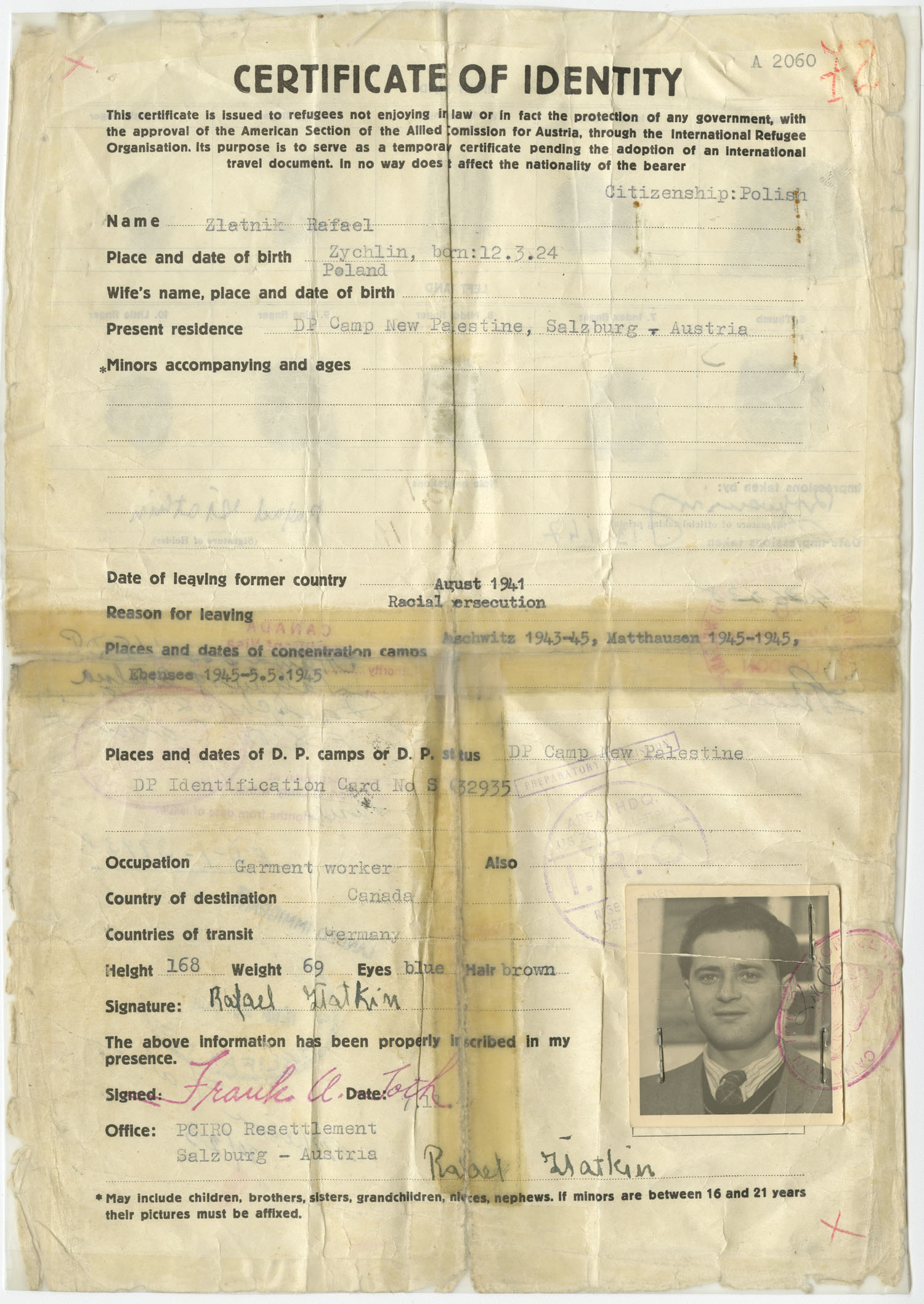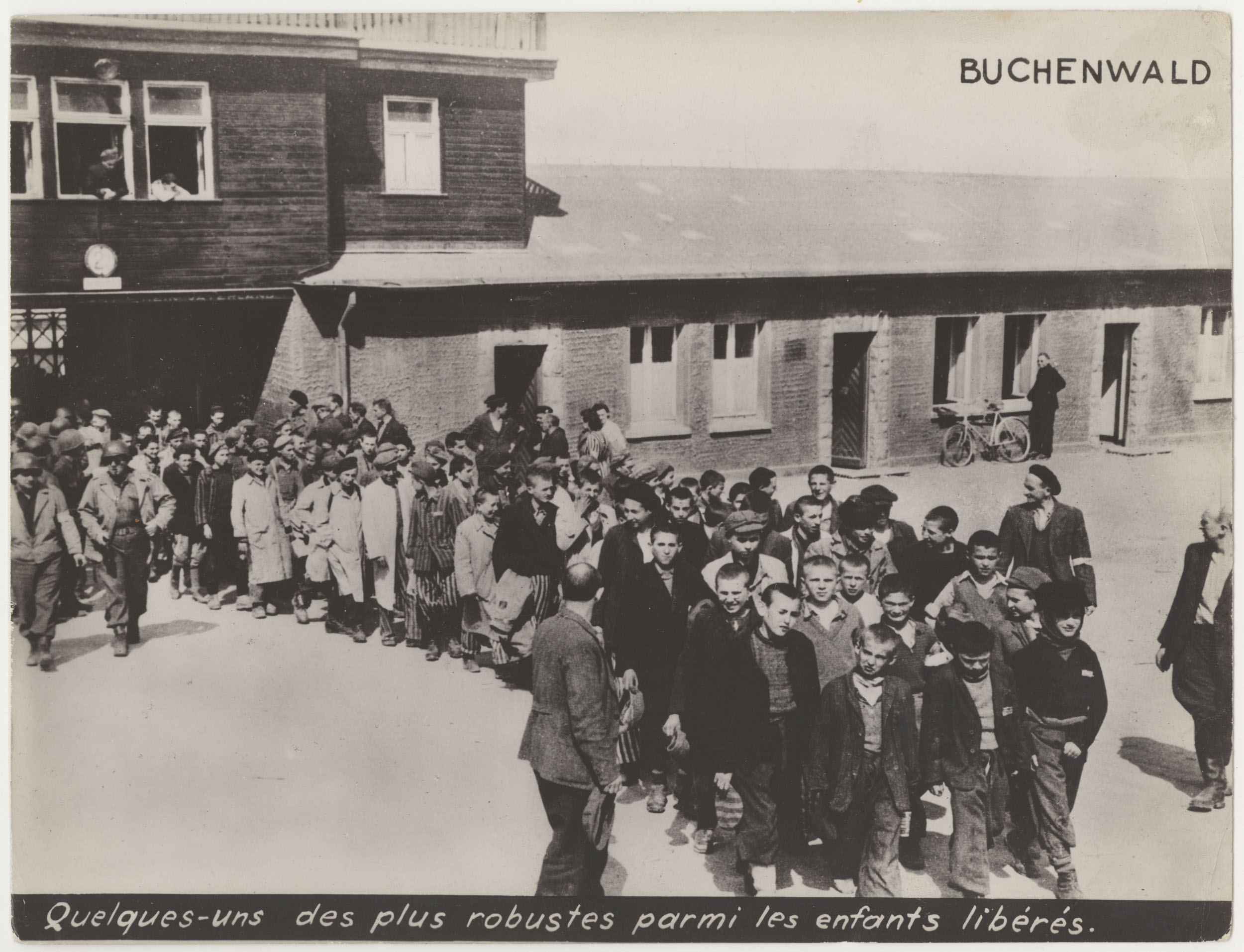These poems are written on a sheet of paper with a heading from a Montreal grocery store. They were written with a typewriter by Jennie Lifschitz, who remembered hearing the poems in concentration camps.
Jennie Lifschitz: A Holocaust Survivor Born in Montreal
Jennie Lifschitz was born in Montreal in 1924 to a Latvian family that had previously immigrated to Canada. When her parents separated, Jennie moved to Latvia with her mother and siblings. A few years later, her brother, Rubin, and sister, Dora, returned to Montreal to live with their father.
When the Germans invaded Latvia in 1941, Jennie’s family members were arrested and taken with other Jews to Skede beach, where they were murdered and buried in a mass grave. Only Jennie and her 14-year-old cousin Bella escaped the arrest. They were forced to move into the Jewish ghetto of Libau.
In October 1943, Jennie was deported to the Kaizerwald camp and forced to work on railroad maintenance. In August 1944, she was deported to the Stutthof camp. Because of her previous experience working on railroads, Jennie was not sent to the gas chamber. She was selected for forced labour and transferred to other camps until her liberation in Neustadt-Holstein on May 3, 1945.
Jennie returned to Montreal on March 2, 1946. She wrote these poems and songs in memory of her experience in concentration camps. She married Sender Mines, also a Holocaust survivor, in 1953.
Jennie and Sender’s son, Michael Mines, donated this document to the Montreal Holocaust Museum in 2007.
This project is part of the implementation of the Plan culturel numérique du Québec.